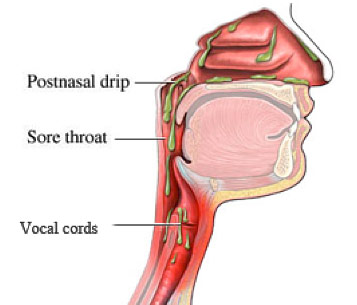- Question: How do the ingredients in e-cigarettes and vaporizers affect respiratory health? - August 16, 2019
- Bad Technique and Vocal Injury - January 9, 2019
- Is Edible Marijuana Dangerous for the Voice? Myths Dispelled - December 18, 2018
- Surprise! You have a hemorrhage - January 31, 2018
- Graves’ Disease: Treatment Overview - September 25, 2017
- Adele and the Stigma of Vocal Injury - July 11, 2017
- Vocal Curbside Consult: How does the thyroid affect the voice? - May 16, 2017
- Vocal Curbside Consult: How do hormones affect the voice? - May 3, 2017
- Vocal Curbside Consult: How do emotion and stress affect the voice? - April 17, 2017
- Vocal Curbside Consult: Vocal Recovery After Illness - April 7, 2017
 The tragic passing of Cory Monteith once again shed the spotlight on the prevalence of drug use. It is not restricted to the acting and singing community but these groups are probably around drugs and alcohol more often than others. Whether in a social or professional environment, nearly every professional voice user has had to confront the decision of whether or not to try cocaine. Occasionally, after trying it, some form a dangerous addiction whereas others use it recreationally and still others never touch it again. But for those whose livelihood depends on their voices, are any of these safe? What is the risk of vocal damage with cocaine use?
The tragic passing of Cory Monteith once again shed the spotlight on the prevalence of drug use. It is not restricted to the acting and singing community but these groups are probably around drugs and alcohol more often than others. Whether in a social or professional environment, nearly every professional voice user has had to confront the decision of whether or not to try cocaine. Occasionally, after trying it, some form a dangerous addiction whereas others use it recreationally and still others never touch it again. But for those whose livelihood depends on their voices, are any of these safe? What is the risk of vocal damage with cocaine use?
What are the effects of cocaine on the voice?
Cocaine may affect the voice in varied ways, according to how it is used.
Cocaine, when snorted, will cause significant injury to the nose and nasal septum due to the chronic constriction of the blood vessels in the nose.
Cocaine “drip” is the mechanism by which cocaine may affect the voice. This occurs when cocaine that is not absorbed by the nose combines with the mucous in the nose and drips down the back of the throat. This is when the drug is often tasted. Because it is dripping into your throat, it also drips onto the vocal cords.

Postnasal drip of mucous alone will affect the voice. The damage is worsened when the mucous is combined with an irritating drug. The vocal cords will swell and become more prone to injury. The voice will become hoarse and higher notes will be more difficult to reach. Damage often results from singing on cords swollen from cocaine “drip.”
When smoked, cocaine results in similar injuries to those that occur with smoking other drugs, such as marijuana and tobacco. This includes laryngitis (inflammation of the cords), which will produce hoarseness. The vocal range will also be affected and restricted.
How would cocaine affect a singer/professional voice user?
A professional voice user is at high risk for voice problems if cocaine is used. There is a risk of:
- Septal perforation causing nasal cosmetic deformity (saddle nose, etc)
- Chronic laryngitis
- Permanent hoarseness
- Asthma/reactive airway (preventing good breath support)
- Chronic cough (producing laryngitis)
- Loss of vocal range (due to vocal scarring)
- Voice fatigue
After a single use, the vocal cords often recover completely without any residual damage. However, over time, they are not able to recover fully if cocaine is used chronically.
Is there a way to reverse damage from cocaine use?
The most important step is to stop using cocaine. Further damage is prevented when use is stopped. The nasal septum and the vocal cords are often not able to repair themselves fully. However, partial recovery may occur. Seeing a laryngologist for a videostroboscopy can help you determine if there is a chance of vocal recovery. A customized recovery program can be designed for you to ensure that you get the best possible outcome for your voice. A nasal specialist can advise you about any signs of injury to the nasal tissue.
Read patient stories about Dr. Reena Gupta from The Division of Voice at the Osborne Head and Neck Institute.
To learn more about the voice, click here.




